|
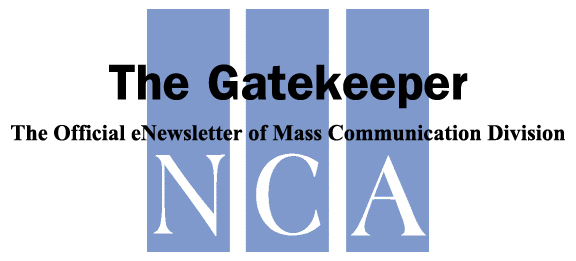
<<click here for archives >>
Vol. 16, No. 2
June 2011
Published three times annually by the Mass Communication Division of NCA.
Publications/Web Editor - Nicholas David Bowman, West Virginia University
--- Join NCA's Twitter Feed at http://twitter.com/NatComm ---
-- MCD on Facebook! Click on the Facebook image below to join our group --

298 MCD Facebook Friends and growing strong...join today!
|
Thanks to Great River Technologies for their continued sponsorship of the Mass Communication Division website.
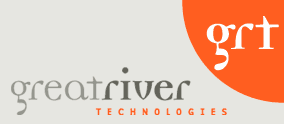
Visit their website at
www.greatrivertech.net
|
|
In this issue:
Top MCD papers for NCA New Orleans announced
Washington, D.C. -- As acceptance letters have been sent out for MCD papers, posters and panels for NCA New Orleans, the Division is proud to announce the winners for this year's top faculty and students papers. These competitively-ranked papers were ranked the highest overall of all submissions for this year, and will be recognized at this year's Division meeting.
The top faculty papers for 2011 are:
- "Persuasiveness of a Humorous Narrative Combined with an Explicit Persuasive Appeal" by Emily Moyer-Guse, John Tchernev, and Whitney Walther (Ohio State University)
- "Imperfect Heroes and Villains: Patterns of Upholding and Violating Distinct Moral Domains and Character Appeal" by Ron Tamborini, Matthew Grizzard, Allison Eden, and Robert Lewis (Michigan State University)
- "Social Aggression on Television and Its Relationship to Children's Aggression in the Classroom", by Nicole Martins (Inidana University) and Barbara Wilson (University of Illinois, Urbana- Champaign)
- "Adolescents, morality and interactive entertainment: The influence of moral salience on actions and entertainment experience in interactive media" by Sven Joeckel (Universitat Erfurt), Nicholas David Bowman (West Virginia University), and Leyla Dogruel (Free University of Berlin)
- "Partisan audience polarization: Beyond selective exposure" by Thomas Ksiazek (Villanova University)
Top top student papers for 2011 are:
- "The Violent Voice: An Examination of the Impact of Violence in Film on the Audience" by Nicholas Scott Smith and James Durbin (West Virginia University)
- "Historicizing a Holiday Special: Rudolph's Mark on Children's Television Broadcasting" by Heather Liebling (University of Pittsburgh)
- "Media Framing of Government Intervention: The Morality of Bailouts and Economics of Loans" by Steven Stuglin (Georgia State University)
- "A (Truly) Captive Audience: The Twilight Zone as Mid-Century Equipment for Living" by Robert Mack (University of Texas, Austin)
<<back to
top>>
Nominations for MCD Teacher, Scholar awards now being accepted
Washington, D.C. -- Nominations for the MCD Teacher and Scholar awards are now being accepted by the Division. We encourage nominations, including self-nominations, for both of these awards from the membership. Nomination information about each award can be found using the following links:
Start Applications Here
Deadline: September 30, 2011
|
|
|
A list of past award winners can be viewed here, and further questions about the awards or the nomination process should be directed to:
Dana Mastro
University of Arizona
Department of Communication, Building 25
Tucson, AZ 85721
mastro@email.arizona.edu
<<back to
top>>
MCD accepting nominations for officers, leadership
Washington, D.C. -- Want to be more active in the Mass Communication Division? Submit your name for nomination!
The Mass Communication Division of the National Communication Association is gathering names of those members who are interested in being nominated for open positions. If you submit your name it will appear on the ballot at our next meeting in New Olreans. Elections will take place at this time. Please send nominations to Jakob Jensen at jakobdjensen@gmail.com. Please consider self-nomination. The following list details the positions for which we are accepting nominations and a brief description of the positions.
NOTE: Names submitted for Vice-Chair Officer Elect and Secretary Elect are not nominations, they are for the consideration of the committee which will make the final nominations for these positions.
- Vice-Chair Elect (4 years of service): In the first year of service the Vice-Chair Elect will oversee the teaching and service awards. In the second year the Vice-Chair Elect becomes the Vice-Chair and he/she must attend the program planning meeting at NCA, distribute the call for papers, and plan the program (with assistance from others in the organization). The Vice-Chair must also represent the MCD on the Legislative Council. The Vice-Chair Elect then becomes the Chair and must preside over MCD business meetings and at Executive Committee meetings and represent the MCD on the Legislative Council. In the final year of service he/she will serve as Immediate Past-Chair and represent the MCD on the Legislative Council and act as an adviser to the Chair.
- Secretary Elect (2 years of service): The Secretary Elect records notes and election results during the MCD business meeting. He/she is also responsible for distributing these notes after they have been approved. The Secretary Elect then becomes the Secretary who is responsible for distributing notes at the MCD meeting and formally presenting the notes at the meeting.
- Vice Chair Elect of Research Committee / First Year Member of Research Committee (4 years of service, 3 year term on Research Committee, one year on Nominating Committee): The Research Committee's Vice-Chair elect will serve as Vice Chair in his/her second year and Chair in his/her third year. Additionally after the third year this person will become a member of the Nominating Committee. The purpose of the research committee is to coordinate the evaluation of competitive papers submitted to the Division for the annual convention, to plan the section meetings of the annual convention that are devoted to research in Mass Communication and to coordinate and promote the research activities of the Division.
- Graduate Student Representative (1 year term): The Graduate Student Representative will represent the Division at any meetings held by the Association in which graduate student interests are discussed and in which graduate students are invited to participate.
- Representative to NCA Nominating Committee (1 year term): This person will represent the MCD on the Association's Nominating Committee which prepares a slate consisting of two or more nominees for the office of Second Vice President and two or more nominees for each at-large position vacant on the Legislative Assembly and the Committee on Committees. NCA officers and members who have served on the NCA Nominating Committee during the previous five years are not eligible to serve in this position.
- Representative to the NCA Resolutions Committee (1 year term): This person will represent the MCD on the Association's Resolutions Committee which considers resolutions that may be included in the Association's Policy Platform. NCA officers and members who have served on the NCA Resolutions Committee during the previous five years are not eligible to serve in this position.
- Legislative Assembly Representative (2 year term): This person will attend the Association's annual Legislative Assembly meetings and represent the interests of the Division at those meetings, record the proceedings from these meetings, and report a summary of those proceedings at the annual business meeting.
- Nominating Committee of the Division (2 or 3 every year, 2 year terms): This committee is responsible for presenting a slate of potential candidates to the membership during the business meeting. They also hand out, collect, and count ballots. The nominee who receives the most votes will be chair of the committee and therefore a member of the Executive Committee. Several positions are members of the Executive Committee, please note the additional requirements of these positions. Executive Committee Positions Vice-Chair Elect of Research Committee in three years Vice-Chair Officer Elect
<back to
top>>
Newest APA journal Psychology of Popular Media Culture (PPMC) open for submissions
Philadelphia -- Research Psychologist Joanne Broder Sumerson (St. Joseph's University) is thrilled to introduce the first APA published journal in media psychology-Psychology of Popular Media Culture (PPMC). James Kaufman and I are the founding co-editors. The journal is officially open for business and accepting submissions. PPMC focuses upon empirical research and papers on how popular culture and general media influence individual, group, and system behavior. The journal's official website with manuscript submission instructions can be found at http://www.apa.org/pubs/journals/ppm.
<<back to
top>>
New Ph.D. Blazed Trail for Women in Radio
article courtesy of the College of Social and Behavioral Sciences at UMass Amherst
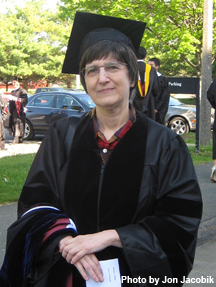 Amherst, Mass. -- Walking across the Mullins Center stage to receive her PhD in communication a few weeks ago marked another milestone in 64-year-old Donna Halper’s rather extraordinary life in radio and print. A well-known media historian, radio consultant, author of five books, and assistant professor at Lesley University, she also holds claim to discovering the rock group Rush back in the 1970s. In fact, Rush dedicated two albums to her. Halper appears in Beyond the Lighted Stage, the 2010 documentary about them, and when the band was honored on the Hollywood Walk of Fame last year, she handed over the star. Perhaps most important though is Halper’s role as a second-wave feminist who changed broadcasting in the 1960s and 1970s when equal opportunity rulings finally made radio open up to women. Amherst, Mass. -- Walking across the Mullins Center stage to receive her PhD in communication a few weeks ago marked another milestone in 64-year-old Donna Halper’s rather extraordinary life in radio and print. A well-known media historian, radio consultant, author of five books, and assistant professor at Lesley University, she also holds claim to discovering the rock group Rush back in the 1970s. In fact, Rush dedicated two albums to her. Halper appears in Beyond the Lighted Stage, the 2010 documentary about them, and when the band was honored on the Hollywood Walk of Fame last year, she handed over the star. Perhaps most important though is Halper’s role as a second-wave feminist who changed broadcasting in the 1960s and 1970s when equal opportunity rulings finally made radio open up to women.
“I attended Northeastern University (undergraduate, MEd, and MA) where eventually I became the first woman announcer in the school’s history, after enduring nearly four years of being refused the chance,” Halper says. “I was told I could be a teacher, a nurse or a secretary - not that there’s anything wrong with those professions - but my heart was in the media. Nobody would give me the chance to show what I could do. I never wanted to be given a job just because I’m a woman, but I never wanted to be arbitrarily rejected from one for being female either.”
Persistence paid off for Halper. She finally DJ’d her first program in October 1968 and never looked back. “My career has had its ups and downs. The ups: working in four major markets (Boston, New York, Washington, D.C., and Cleveland), discovering Rush (and remaining friends all this time), meeting and interviewing many celebrities, becoming one of the few women radio consultants, and being a pundit on many radio and TV shows. The downs: I never got equal pay, I endured sexual harassment at several stations, and wasn’t always taken seriously - even though I was a manager. But if you’re going to be the first woman to do something, it helps to have a sense of humor - and determination.”
It was in Cleveland as music director at WMMS FM that Halper gave Rush their big break. A friend from Canada had sent her their first LP, “Rush.” “I’d never heard of the group, but as soon as I dropped the needle on the song “Working Man,” I knew it was perfect for that working class town.” The news about Rush began to spread, and the buzz soon led to a record deal for the band, who thanked Halper in the album’s liner notes. A wonderful friendship has endured all these years. [read more]
As Halper’s career in radio developed, she hired and trained staff, worked with and developed talent, helped to choose or improve formats, conducted music and market research, and helped her consulting clients get better ratings. In fact, she was one of the first women in the U.S. to become a radio consultant. For 18 years she was an adjunct at Emerson College, mainly in journalism, before Lesley University whisked her away in 2008.
This past semester, while Halper was putting the final touches on and defending her dissertation, she taught Intro to Communication, Intro to Journalism, Global Communication, and Public Speaking, did a fair amount of freelance writing, and advised the student newspaper. She also had a number of speaking engagements to promote her latest book, Boston Radio: 1920-2010, that came out this spring (click here for WBUR interview). A form of lupus means Halper experiences a fair amount of pain, but she says that keeping busy helps. “I’m pretty good at setting priorities, and I’ve always been good at multi-tasking!”
“Because I wanted to advance my academic career, getting that PhD was important - but no one in the Boston area would take me in,” Halper says. “Even though attending UMass meant lots of driving (200 miles roundtrip, 3-4 times a week), I had to go for it. I got in, and in turn I agreed to develop and teach some courses - I even was nominated for the Distinguished Teaching Award twice. I LOVED the program - a whole new world of new and interesting theories, plus the small classes lent themselves to discussion and critical thinking. I’ve recommended the Comm program to others and recruited several students.”
Halper’s dissertation focused on Neil Postman, often considered the father of the school of thought known as media ecology, and best known for his analysis of television. His 1986 bestseller, Amusing Ourselves to Death, is a classic and Halper actually helped Postman’s son update it in 2005. “But despite having been on radio, having grown up with radio, and by all accounts being a fan of radio, Postman never wrote an analysis of radio,” explains Halper. In “Neil Postman’s Missing Critique: A Media Ecology Analysis of Early Broadcasting, 1920-1935” Halper provides that missing critique.
“Follow your dream,” Halper advises. “I was told I’d never make it in media. And I was told I was too old to pursue a PhD. Sure, you need to be practical and have some skills that will get you a job, but you should try for the career you want. I’m glad my parents insisted I get a teaching degree - being a high school English teacher paid the bills while I fought for the right to be in radio. Success wasn’t guaranteed, but I tried. And for people going back to school after a number of years in the workforce, well, maybe I can be a role model.”

[original article can be found here]
<<back to
top>>
Global Report on the Status of Women in New Media
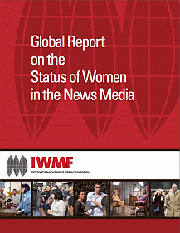 Washington, D.C. -- Carolyn Byerly, Professor of Journalism at Howard University, has completed a major study of women's status at news companies in 59 nations. The technical report has been published and is downloadable, Global Report on the Status of Women in News Media (http://iwmf.org/pdfs/IWMF-Global-Report.pdf). Washington, D.C. -- Carolyn Byerly, Professor of Journalism at Howard University, has completed a major study of women's status at news companies in 59 nations. The technical report has been published and is downloadable, Global Report on the Status of Women in News Media (http://iwmf.org/pdfs/IWMF-Global-Report.pdf).
The study, funded by the International Women's Media Foundation, provides findings from interviews with executives at 522 companies in 59 nations. While aggregated data show that men still fill 73% of the positions in top management and government among the companies surveyed, data vary considerably by region. Women fare well at the top, for instance, in Eastern and Nordic Europe, and much lower in the nations of Asia.
An excerpt from the study's website: "In this long-awaited extensive study, researchers found that 73 percent of the top management jobs are occupied by men compared to 27percent by women. Among the ranks of reporters, men hold nearly two-thirds of the jobs, compared to 36 percent held by women. However, among senior professionals, women are nearing parity with 41 percent of the news-gathering, editing and writing jobs. The new global study shows women in 26 percent of the governing and 27 percent of the top management jobs." [read more]
The author was assisted by three statisticians and 150 local researchers in this undertaking, the most massive to date seeking to locate women in journalism employment internationally. The author will now begin to develop academic articles from the data.

<<back to
top>>
Study Finds Public Relatively Unconcerned About Nanotechnology Risks
Raleigh, N.C. -- A new study finds that the general public thinks getting a suntan poses a greater public health risk than nanotechnology or other nanoparticle applications. The study, from North Carolina State University, compared survey respondents’ perceived risk of nanoparticles with 23 other public-health risks.
The study is the first to compare the public’s perception of the risks associated with nanoparticles to other environmental and health safety risks. Researchers found that nanoparticles are perceived as being a relatively low risk.
“For example, 19 of the other public-health risks were perceived as more hazardous, including suntanning and drinking alcohol,” says Dr. Andrew Binder, an assistant professor of communication at NC State and co-author of a paper describing the study. “The only things viewed as less risky were cell-phone use, blood transfusions, commercial air travel and medical X-rays.”
In fact, 60 percent of respondents felt that nanoparticles posed either no health risk or only a slight health risk.
In the study, researchers asked a nationally representative panel of 307 people a battery of questions about how risky they believe nanoparticles are compared to 23 other public health risks - such as obesity, smoking, using cell phones and nuclear energy.
Policy implications of these findings could be substantial given the concerns expressed by proponents and opponents of nanotechnology that the public is wary of its environmental health and safety dangers. “The findings suggest just the opposite,” says Dr. David Berube, professor of communication at NC State and lead author of the study. “While it remains unclear whether nanoparticles are safe, they are not a major concern among the general public.”
The paper, “Comparing nanoparticle risk perceptions to other known EHS risks,” is forthcoming from the Journal of Nanoparticle Research. The paper was co-authored by Berube and Binder; Jordan Frith and Christopher Cummings, Ph.D. students at NC State; and Dr. Robert Oldendick of the University of South Carolina. The research was funded by the National Science Foundation.
NC State’s Department of Communication is part of the university’s College of Humanities and Social Sciences.

<<back to
top>>
North Dakota honors Outstanding Graduate Student
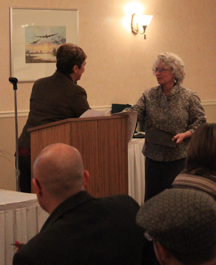 Grank Forks, N.D. -- The Outstanding Communication Graduate Award was presented to UND doctoral student Charlotte Klesman on April 27, 2011 at the Communication Program Annual Awards Banquet. Criteria for the award include developing presentations and successful publications, contributing to research in a candidate’s chosen field, and active participation in Communication Program projects and events. This award was developed by faculty to honor a graduate student with overall outstanding abilities. It represents one of the many exciting changes taking place in the Communication Program at University of North Dakota. Grank Forks, N.D. -- The Outstanding Communication Graduate Award was presented to UND doctoral student Charlotte Klesman on April 27, 2011 at the Communication Program Annual Awards Banquet. Criteria for the award include developing presentations and successful publications, contributing to research in a candidate’s chosen field, and active participation in Communication Program projects and events. This award was developed by faculty to honor a graduate student with overall outstanding abilities. It represents one of the many exciting changes taking place in the Communication Program at University of North Dakota.
Klesman is ABD, with graduation anticipated in Fall, 2011. She will receive a Ph.D. in Communication and Public Discourse. She received her Masters in Mass Communication from University of Wisconsin Superior. In addition to the Outstanding Communication Graduate Award, she has earned five other accommodations, including the Marion J. Piper Memorial Scholarship Award and the Blue Cross & Blue Shield Special Distinction Award. She began her academic career in 1977, teaching college and university classes in business, philosophy, and communication. Her publications include two scholarly journals and numerous popular publications, and ten presentations and conference papers.
The awards banquet, titled “COMMotion,” was sponsored by Assistant Professor Kimberly Cowden’s Public Relations Campaigns class. These Communication Program students organized event promotion, event handouts, and developed the program with Professor Cowden’s direction. Two students emceed the event and others developed a PowerPoint presentation listing the names and sponsors of the many awards, fellowships, and grants presented to Communication Program undergraduates, along with the names of recipients.
Klesman is a Ph.D. student and graduate teaching assistant at University of North Dakota. Her area of expertise includes mass media, particularly public relations used by nonprofit groups, and distance education. Current areas of research include language people use to describe how they react to and interact with the natural environment.

<<back to
top>>
USF professor publishes Future Media
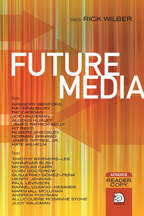 Orlando, Fla. -- NCA member Rick Wilber from the University of South Florida is the editor of "Future Media" (Tachyon Publishing, 2011), an anthology that collects classic works of fiction and non-fiction from Ray Bradbury to Marshall McLuhan. Wilber is a longtime instructor of various introductory mass-media classes, a textbook author, a novelist, and a well-published science-fiction short-story writer. Orlando, Fla. -- NCA member Rick Wilber from the University of South Florida is the editor of "Future Media" (Tachyon Publishing, 2011), an anthology that collects classic works of fiction and non-fiction from Ray Bradbury to Marshall McLuhan. Wilber is a longtime instructor of various introductory mass-media classes, a textbook author, a novelist, and a well-published science-fiction short-story writer.
In Future Media he offers fiction excerpts from Bradbury's "Fahrenheit 451," Huxley's "Brave New World," Norman Spinrad's "Bug Jack Barron," and Cory Doctorow's "Makers" novels, as well as classic media-predictive short fiction reprints from James Tiptree Jr., Gregory Benford, Kit Reed, James Patrick Kelly, Joe Haldeman, Kate Wilhelm, Pat Cadigan, Robert Sheckley, James Patrick Kelly, and Guillermo Gomez-Pena.
The essays and non-fiction reprints include McLuhan's famous "The Medium is the Message" chapter from "Understanding Media," as well as essays from Allucquere Rosanne Stone, Andrew Postman (writing about his father, Neil), Nicholas Carr, Judy Wacjman, Henry Jenkins, James Patrick Kelly and Cory Doctorow, as well as Vannevar Bush's famous "As We May Think" article for the July, 1945 issue of The Atlantic Monthly. There is also a speech from Timothy Berners-Lee that was delivered to the U.S. House of Representatives on the future of the World Wide Web. With an introduction by Paul Levinson of Fordham University.
Examination copies are available from Tachyon Publications. Interested instructors can send an e-mail to jw@tachyonpublications.com or contact Wilber at rwilber@usf.edu.

<<back to
top>>
The digital world: Ananda Mitra tackles how technology is affecting everything around us
article courtesy of the Office of Communication and External Relations at Wake Forest University
 Winston-Salem, N.C. -- When communication professor Ananda Mitra set out to write about the complex problems and issues generated by the widespread adoption of digital technology, he knew he had taken on a big job. So big, it led him to write 10 books simultaneously. Winston-Salem, N.C. -- When communication professor Ananda Mitra set out to write about the complex problems and issues generated by the widespread adoption of digital technology, he knew he had taken on a big job. So big, it led him to write 10 books simultaneously.
The first six books in The Digital World series will be released in June. Each book is about 120 pages long and addresses a specific issue about digital technology.
The first books deal with how digital technology like the Internet and its massive connective reach affect everything from games to entertainment to communication. Another four books that deal with photography, commerce, navigation and art will be published later.
Mitra says he enjoyed the synergy of tackling so many ideas at once. “This is also extremely energizing, mainly because I’ve enjoyed writing in this fashion,” he said. “I’m hoping there will be another series.”
Mitra is chair of the Department of Communication, but he also has a bachelor’s degree in technology from the prestigious Indian Institute of Technology in Kharagpur, India.
He says the The Digital World series is intended to help people understand how digital technologies are changing the world. “Each of these books have been written in a way that is accessible to the general population,” he said. The books are being published through Facts on File and are available for advance purchase online through Borders and Amazon. The books will also be available as e-books, a reflection of how a book printed on paper may no longer hold the mass appeal it used to.
Mitra also has two other books coming out this year. One deals with how people are alienated from the digital tools they use. “I want to place the tools in front of everybody so everyone can grasp how they work, how they’re changing everyone’s lives,” he said.
The other book is on the best practices in conducting social-science research in collecting feedback from the general population about programs provided by local government agencies such as police departments and parks and recreation departments.

[original article can be found here]
<<back to
top>>
Wolfsfeld to publish Making Sense of Media and Politics: Five Principles in Political Communication
Jerusalem -- Colleague Gadi Wolfsfeld has published Making Sense of Media and Politics: Five Principles in Political Communication. The book is designed to provide students with a basic introduction to our field. The underlying idea is that when students understand some of the central principles in political communication it provides them with an important base for learning more. This approach can also teach students why many of us believe that there is nothing so practical as a good theory.
Here are the five principles:
- Political power can usually be translated into power over the news media.
- When authorities lose control over the political environment they also lose control over the news.
- There is no such thing as objective journalism (nor can there be).
- The media are dedicated more than anything else to telling a good storyand this can often have a major impact on the political process.
- The most important effects of the news media on citizens tend to be unintentional and unnoticed.
Making Sense of Media and Politics is written in a conversational style which should appeal to many students. Because of its distinctive approach, the book can easily be combined with other introductory textbooks.
For a free exam copy, please e-mail Marketing Manager Christine Swedowsky at christine.swedowsky@taylorandfrancis.com.

<<back to
top>>
Penn State Harrisburg now offering M.A. in Communications
Harrisburg, Penn. -- The Penn State Harrisburg School of Humanities is now offering a Master of Arts in Communications. The program received approval in early 2011, and applications are being accepted for students who wish to enter the program. Admission requirements and additional information can be found at http://harrisburg.psu.edu/programs/master-arts-communications.

<<back to
top>>
CONFERENCES AND CALLS
CALL FOR PAPERS
Electronic Journal of Communication / La Revue Electronique de Communication
Special Issue: Videoconferencing in Practice: 21st Century Challenges
Deadline: July 31, 2011
While not yet ubiquitous, videoconferencing can certainly be said to have come of age at the end of the first decade of the 21st century. The capabilities of videoconferencing systems have improved while barriers have been significantly lowered to the point where videoconferencing is no longer extraordinary, albeit still quite novel. This special issue of the Electronic Journal of Communication invites contributions exploring how videoconferencing has become a practical method of interaction in personal, professional, pedagogical, and institutional contexts. Contributors should have a central concern with whether and how users attend to the affordances and constraints of videoconferencing as relevant to the business at hand.
The issue will seek to cover a broad range of subjects to provide a snapshot of 21st century videoconferencing research from a Communication perspective. As such, all authors are asked to include in their literature review and conclusions some sense of how their study deals with questions of Communication research in general, and Communication-focused videoconferencing research in particular.
Manuscripts are invited that cover one of the following areas, or authors may propose their own area that demonstrably adds to the goal of the special issue:
- Case studies of practical videoconferencing in context.
- Survey studies of practical videoconferencing in context.
- Experimental studies that show practical behaviours that may be specific to contexts or cut across contexts.
- Literature reviews that focus on changes or critiques of videoconferencing findings and/or theories.
- Representations of videoconferencing in the mass media or other venues of the public imagination.
- Methodological studies about research practices or methods for capturing/analysing videoconferencing in context.
- Trouble using videoconferencing in context (e.g. constraints of the medium, communication trouble, operational problems such as network trouble, work-arounds).
- Adoption/take-up studies of practical videoconferencing in context.
Authors are welcome to contact the editor to discuss ideas for manuscripts. Given the topic and the electronic nature of the journal, authors are also encouraged to supply video and/or audio clip examples or supplemental materials. Submission detail are as follows:
- NEW deadline for completed manuscripts is July 31, 2011. The issue is scheduled for publication in the first half of 2012.
- Maximum 7500 words (limit includes references but excludes transcribed examples and tables).
- Manuscript and citation format: APA 6th Edition style.
- Submission: Email manuscript files to Sean Rintel at s.rintel@uq.edu.au.
- File format: Word 97 (.doc), Word 2008 (.docx), or PDF. Authors using carefully formatted transcripts (e.g. those of Conversation Analysis) should also provide screenshot images of all excerpts labeled with the appropriate example number. Video and audio clips should be provided in Quicktime .mov format with appropriate indication in the manuscript as to where the clip should appear. Do not embed video or audio in Word or PDF files.
<<back to
top>>
CALL FOR PAPERS
Global Media Journal
Speical Issue: Intelligent Networking and Global Media Communication
Deadline: August 1, 2011
The Global Media Journal is issuing a call for papers for its Fall 2011 issue which
is featuring a special issue on Intelligent Networking and Global Media Communication. The combination of new media technologies and telecommunications has collapsed
the time and distance factors that once separated nations, people and business organizations. The focus of this issue will look at the importance of intelligent networkingwhich provides the technology and electronic pathways that makes
global communication possible. A basic assumption of this planned issue is that the intelligent network is not one network, but a series of networks designed to enhance worldwide communication for organizations and individual users alike. What gives
the network its unique intelligence are the people and users of the system and the
value-added contributions they bring to the system via critical gateway points.
As guest editors, we are interested in all areas of intelligent networking. Articles might address, but are not limited to such topics as:
- Electronic commerce
- Social networking
- Network security issues (i.e., privacy, cyberterrorism, intellectual property)
- Artificial intelligence and communication
- Smart phones and wireless networking
- Broadband television delivery.
Graduate student research: In keeping with the mission of the journal to provide opportunities for graduate student publication, this special issue of Global Media Journal will have a graduate research section. For submission guidelines, please go to http://lass.calumet.purdue.edu/cca/gmj/gmj_submission_guidelines.htm. All papers must be submitted via electronic attachment.
Please direct all inquires and submissions to Dr. Richard A. Gershon, Western Michigan University Richard.Gershon@wmich.edu. Graduate student submissions and queries should
be directed to Dr. Lawrence Wood, Ohio University, woodl@ohio.edu.
CALL FOR PAPERS
Journal of Communication
Special Call: Social Media and Political Change
Deadline: August 15, 2011
The “Arab Spring” as well as recent events in other parts of the world have demonstrated that new communication technologies, such as mobile phones and the internet, are simultaneously new tools for social movement organizing and new tools for surveillance by authoritarian regimes. Though communication theory necessarily transcends particular technologies, software, and websites, digital media have clearly become an important part of the toolkit available to political actors. These technologies are also becoming part of the research toolkit for scholars interested in studying the changing patterns in interpersonal, political, and global communication.
How have changing patterns of interpersonal, political, and global communication created new opportunities for social movements, or new means of social control by political elites? The role of social media in new patterns of communication is especially dramatic across North Africa and the Middle East, where decades of authoritarian rule have been challenged - with varying degrees of success. Social media - broadly understood as a range of communication technologies that allow individuals to manage the flow of content across their own networks of family, friends and other social contacts - seem to have had a crucial role in the political upheaval and social protest in several countries. Mass communication has not ceased to be important, but is now joined with a variety of other media with very different properties that may reinforce, displace, counteract, or create fresh new phenomena.
This Special Issue seeks original qualitative, comparative, and quantitative research on social media and political change, particularly as related to events in North Africa and the Middle East, but we are also receptive to work on political change in other parts of the developing world. We would welcome manuscripts from a diverse range of methodologies, and covering diverse communities and cultures. Methodological innovations or mixed method approaches are particularly encouraged, and manuscripts on the interpersonal and intergroup aspects of social movement organizing are central interest. Whatever the approach, our goal is to select manuscripts that are grounded in the actual use of social media in promoting or resisting political change in developing countries and regions. If you have questions regarding the appropriateness of a potential submission, please contact Prof. Philip N. Howard (pnhoward@uw.edu).
Deadline for Submission is August 15th, 2011, through http://mc.manuscriptcentral.com/jcom. Manuscripts must confirm to all JOC guidelines, including the use of APA 6th edition format and a limit of 30 pages total manuscript length. Please indicate your desire to be considered for the special issue in your cover letter.
CALL FOR PAPERS
MIS Quarterly
Special Issue: Information Systems for Symbolic Action: Social Media and Beyond
Deadline: February 1, 2012
Guest Editors:
Mark Aakhus, Rutgers University (aakhus@rutgers.edu)
Par J. Agerfalk, Uppsala University (par.agerfalk@im.uu.se)
Kalle Lyytinen, Case Western Reserve University (kalle@po.cwru.edu)
Dov Te'eni, Tel Aviv University (teeni@tau.ac.il)
This special issue aims to foster Information Systems research in understanding, illustrating, and explaining how IS forms an inherent aspect of human activity and a means of symbolic action. We invite submissions that advance IS theory and research on the intersection of information systems and symbolic action through theoretical review, analysis, and development, empirical and design studies, or large-scale empirics and methodology development. Central issues to be tackled revolve around novel conceptualizations of IS, uses and design of IS, and methods for investigating IS as grounds, means, and outcomes of symbolic action. (The full call is available at http://www.misq.org/)
Potential authors that would appreciate early feedback regarding the suitability of their material to the special issue are encouraged to submit a research-in-progress version of their manuscript to a developmental workshop that will be organized in conjunction with ICIS 2011. (Potential authors may also send inquiries to the editors that include extended abstracts for advice about relevance to the special issue.) The plan is to invite authors of papers that pass the first round of review to a second developmental workshop in conjunction with ECIS 2012. These workshops are not mandatory but are strongly encouraged as they aim to support authors in preparing and developing their manuscripts. Both workshops will be hosted by the AIS Special Interest Group on Pragmatist IS Research (SIGPrag). More information about these events will be announced at http://www.sigprag.org/.
Submission deadline for the ICIS 2011 workshop is August 1, 2011.
Submission Deadline for Special Issue: February 1, 2012
The full call for papers is available on the MIS Quarterly's web site at http://www.misq.org/.
<<back to
top>>
Promotions, Awards, and Publications
Promotions and Appointments
Wendy Barron (Lehigh Carbon Community College) was promoted to Associate Professor of Media Communication.
Andrew Billings (Clemson University) has accepted a position as the Ronald Reagan Chair of Broadcasting in the Department of Telecommunication & Film at the University of Alabama.
Scott W. Campbell (Univeristy of Michigan) was recently promoted to Associate Professor with
tenure in the Department of Communication Studies.
Dane S. Claussen (Point Park University) resigned in December 2010 as Chair of Faculty and full Professor in the School of Communication. In January 2011, he became the Executive Director of American Civil Liberties Union of Nevada, with offices in Las Vegas and Reno. He continues as Editor of Journalism & Mass Communication Educator for AEJMC.
Adam Earnheardt (Youngstown State University) was promoted to Associate Professor with Tenure in the Department of Communication.
Stephen Farnsworth (George Mason) has been promoted to Associate Professor with Tenure in the Department of Communication.
Farooq A. Kperogi (Kennesaw State University) has completed a Ph.D. in Communication at Georgia State University, joining the faculty at KSU as an Assistant Professor of Journalism and Citizen Media.
Donna Halper (Lesley University) has successfully defended her dissertation Neil Postman's Missing Critique: A Media Ecology Analysis of Early Radio, 1920-1935 and will be awarded a Ph.D. in Communications from the University of Massachusetts-Amherst. The school recently published an online article on Halper and her work here.
In Fall 2011, Lindsey Harvell (Doctoral candidate, University of Oklahoma) will join the faculty of the Department of Communication at Southern State University.
Catherine A. McCormick (Penn State Harrisburg), has been named interim Communications Program Coordinator for the summer of 2011.
<<back to
top>>
Awards, Honors and Grants
Wendy Barron (Lehigh Carbon Community College) was awarded an Entrepreneurial Project Grant titled Designing Communication Curriculum for the 21st Century.
Carolyn Byerly (Howard University) has received an "Exemplary Faculty Award" from the Graduate School of Howard University for mentoring the largest number of graduating doctorate and masters students in 2011 -- five doctoral students and one master's student.
Adam Earnheardt (Youngstown State University) was presented with YSU's Student Services Award in April 2011.
Marina Krcmar (Wake Forest University) received the McDonough Faculty Fellowship at Wake Forest University, a two-year grant awarded to a faculty member at the university who "exemplifies the teacher-scholar ideal."
The Eastern Communication Association's 2011 Everett Lee Hunt Award went
to Ronald J. Zboray and Mary Saracino Zboray for their work Voices without Votes: Women
and Politics in Antebellum New England (Durham: University of New
Hampshire Press / University Press of New England 2010).
<<back to
top>>
Publications and Media Mentions
Dissertation research by Mass Communication Division member Mary Angela Bock (Kutztown University) was mentioned in a report issued by the FCC in June. The FCC’s Working Group on the Information Needs of Communities released the report June 9th. Bock’s research focused on video journalism in a variety of contexts. She found cause for concern regarding story depth and quality when TV station VJs (also known as “one man bands”) are required to produce a story every day. The FCC report can be downloaded here.
Scott Campbell (University of Pittsburgh) has published Mobile Communication
Research Series, Volume II: Bringing Us Together and Tearing Us Apart with Transaction Publishers (New Brunswick, NJ). The book is published with Rich Ling.
Stemming from his time as a Canada-US Fulbright Scholar at McGill University in Montreal, Stephen Farnsworth (George Mason) has published The International Two-Step Flow in Foreign News: Canadian and U.S. Television News Coverage of U.S. Affairs in the International Journal of Press/Politics, 15(4): 401-419. The article is coauthored with Stuart Soroka and Lori Young, both of McGill.
Donna Halper (Lesley University) has published her fifth book Boston Radio 1920-2010 which documents this history of Boston in words and pictures. The book is published by Arcadia Publishing and has gone into a second printing.
Robert McChesney (Univeristy of Illinois) and Victor Pickard (New York University) have published Will the Last Reporter Please Turn out the Lights: The Collapse of Journalism and What Can Be Done To Fix It. by The New Press (New York).
Department chair Ananda Mitra (Wake Forest University) has publised Alien Technology: Coping with Modern Mysteries with SAGE (Thousand Oaks, Calif.) and Needs Assesment: A Systematic Approach to Data Collection with Sagamore (Urbana, Ill.).
Research on mobile Internet by Katy Pearce (US Department of State, University of California-Santa Barbara) was featured in the Armenian newspaper ePress.am. The article featuring her research focused on increased Internet penetration rates in Armenia.
New Assistant Professor Mike Serazio (Fairfield University) has published two articles in The Atlantic, 'The Greatest Movie Ever Sold' and the Future of Product Placement (April 22, 2011) and Jared Lee Loughner and the Rise of Anti-Social Media (January 11, 2011).
Rick Wilber (University of South Florida) has published Future Media with Tachyon Publications. The book, a "startling exploration of the mass-media age uniquely combines complex nonfiction and prescient fiction from the best and brightest visionaries of the future" features fiction and non-fiction writings from notable authors, including Marshall McLuhan, Henry Jenkins, Paul Levinson, Aldous Huxley, and Ray Bradbury.
<<back to
top>>
Position Announcements
Shanghai International Studies University
Research Fellow
Open Deadline
The SISU Intercultural Institute (SII) of Shanghai International Studies University announces a new faculty position for “Research Fellow” open to Chinese nationals having just completed an international PhD. The SII is a leading intercultural communication (IC) research institute in China that competes actively for national research projects, publishes the thematic IC monograph series, Intercultural Research, hosts academic conferences, and oversees IC MA programs in the College of English, College of Journalism & Communications, and the SISU MBA program, as well as a IC PhD program in the College of English (and from 2012, a PhD in “Translingual and Intercultural Studies” for other western language majors) (all teaching primarily in English). SISU is a competitive equal-opportunity university employer offering a good package for new doctorates returning from overseas, as well as attractive opportunities for developing as a researcher, instructor, and project participant. Applicants should log on to the SISU HR website for information on policies and procedures and send Chinese and English curriculum vitae/resume and forms for position 52 at the link http://hr.shisu.edu.cn.
<<back to top>>
NCA's RFP Tracker - Opportunities for Mass Communication Research
NCA's RFP Tracker identifies funding opportunities (including research grants, residential fellowships, travel funds, awards, etc.) for communication scholars. There are many grant opportunities for those interested in mass communication research. The RFP Tracker lists funding and fellowship opportunities for graduate students, post-docs, faculty, and people outside of the academy. Check out the RFP Tracker website at http://www.natcom.org/index.asp?bid=10977 and download the most recent report.
<<back to top>>
NCA looking for Subject Matter Experts for national database
Jennifer Glicoes of the National Communication Association main office is looking for MCD members interested in serving as Subject Matter Experts to be contacted by news media organizations. If you are interested in this opportunity, please e-mail Jennifer (jglicoes@natcom.org) with the following information:
- Name and affiliation
- Email address
- Telephone number
- Brief 300 word biography
- Names of any relevant publications (3-5)
- Names of any relevant courses you teach
<<back to top>>
MCD Officers 2010-2011
| MCD Officers |
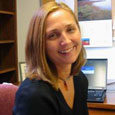 Chair Chair
Marina Krcmar
Department of Communication
Wake Forest University
PO Box 7347
Winston-Salem, NC 27109
Krcmarm@wfu.edu
(336) 758-5407 |
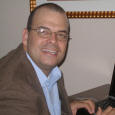 Vice
Chair Vice
Chair
Adam Earnheardt
Youngstown State University
Department of Communication
1 University Plaza
Youngstown, OH 44555
acearnheardt@ysu.edu
(330) 941-1845 |
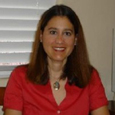 Vice Chair-Elect Vice Chair-Elect
Dana Mastro
Department of Communication
University of Arizona
Communication 317
Tucson, AZ 85721
mastro@email.arizona.edu
(520)307-0697
|
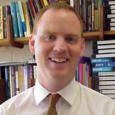 Past
Chair Past
Chair
Andrew C. Billings
Reagan Endowed Chair of Broadcasting
University of Alabama
Department of Telecommunication & Film
Tuscaloosa, AL
acbillings@ua.edu
|
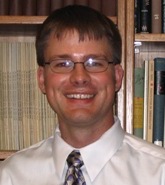 Secretary Secretary
Jake Jensen
Purdue University
Department of Communication
BRNG 2144
West Lafayette, IN 47907
jdjensen@purdue.edu
(765) 494-7781
|
 Secretary-Elect Secretary-Elect
Hugh Phillips Curnutt
Montclair State University
Communication Studies
Life Hall 225A
Montclair, NJ 07043
curnutth@mail.montclair.edu
(973) 655-4464
|
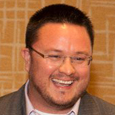 Publications and Web Editor (expires '12) Publications and Web Editor (expires '12)
Nicholas David Bowman
West Virginia University
Communication Studies
108 Armstrong Hall
Nicholas.Bowman@mail.wvu.edu
|
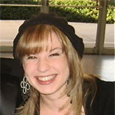 Graduate Student Rep. Graduate Student Rep.
Elizabeth Cohen
Georgia State University
Department of Communication
662 One Park Place
Atlanta, GA 30302
ecohen@gmail.com
(404) 413-5364 |
| Research Committee |
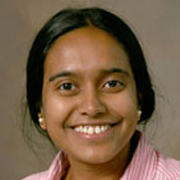 Chair Chair
Sumana Chattopadhyay
Marquette University
Diederich College of Comm.
403 Johnston Hall
Milwaukee, WI 53233
sumanach@gmail.com
(414) 288-3488
|
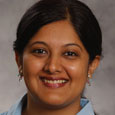 Vice Chair Elect ('12) Vice Chair Elect ('12)
Srividya Ramasubramanian
Texas A&M University
Department of Communication
211 Bolton Hall
College Station, TX 77843
srivi@tamu.edu
(979) 845-5178 |
 Vice Chair Elect ('13) Vice Chair Elect ('13)
David Rhea
Governors State University
Communication Studies
University Park, IL 60484
d-rhea@govst.edu
(708) 534-4392
|
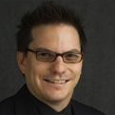 Vice Chair-Elect ('14) Vice Chair-Elect ('14)
Brent Malin
University of Pittsburgh
Department of Communication
Pittsburgh, PA 15260
bmalin@pitt.edu
(412) 624-6798 |
| Nominations Committee |
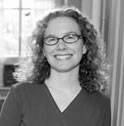 Committee (expires '11) Committee (expires '11)
Melissa Click
University of Missouri-Columbia
Department of Communication
132 Heinkel Bldg.
Columbia, MO 65211
ClickM@missouri.edu
(573) 884-4694
|
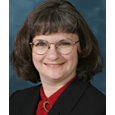 Chair (expires '11) Chair (expires '11)
Nancy Jennings
University of Cincinnati
McMicken Coll. of Arts & Sci.
137 McMicken ML 0184
Cincinnati, OH 45521
nancy.jennings@uc.edu
(513) 556-4456 |
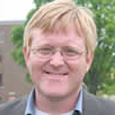 Committee (expires '12) Committee (expires '12)
Kyle Barnett
Bellarmine University
2001 Newburg Rd.
Louisville, KY 40205
kbarnett@bellarmine.edu
(502) 272-8223 |
 Chair (expires '12) Chair (expires '12)
Jake Jensen
Purdue University
Department of Communication
BRNG 2144
West Lafayette, IN 47907
jdjensen@purdue.edu
(765) 494-7781
|
 Committee (expires '12) Committee (expires '12)
Leslie Rill
Portland State University
Department of Communication
NH 34
Portland, Oregon 97207
lrill@pdx.edu
(503) 725-3608 |
|
| Representatives to NCA General Assembly |
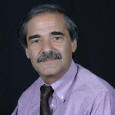 Legislative Assembly Legislative Assembly
Stan
Tickton
Norfolk State University
Mass Communication/Journalism
700 Park Ave., Unit 3249
Norfolk, Virginia 23504
stickton@nsu.edu
(757) 823-2383 |
 Legislative Assembly Legislative Assembly
Jeff Tyus
Youngstown State University
Department of Communication
1 University Plaza
Youngstown, OH 44555
jltyus@ysu.edu
(330) 941-3631 |
 NCA Resolutions Committee NCA Resolutions Committee
David Berube
North Carolina State University
Communication Department
201 Winston Hall
Raleigh, NC 27695
dmberube@ncsu.edu
(919) 515-9750
|
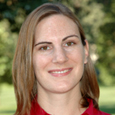 NCA Nominating Committee NCA Nominating Committee
Emily Moyer-Guse
Ohio State University
School of Communication
154 North Oval Mall
Columbus, OH 43210
moyer-guse.1@osu.edu
(614) 292-3400
|
<<back
to top>> |



